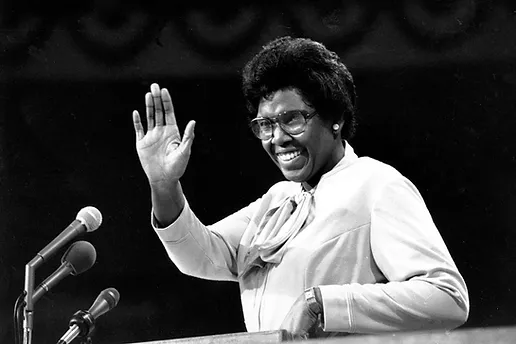
INFORMATIONAL
March 03, 2023
Women With Disabilities Who Changed The World
By Marijke Everts | Campaign Coordination and Administrative Assistant Europeana Foundation
March is Women’s History Month. Throughout history, women’s contributions and accomplishments have been generally overlooked. This is even more so for women with disabilities, whose stories and achievements seem to be often left out of women’s history. These women have achieved great things, from activism, and politics to even becoming war heroes. This article, originally published at www.europeana.eu, highlights four women whose accomplishments intersect in several ways, proving that no one fits in a single box.
Barbara Jordan was a lawyer, educator, politician, and Civil Rights leader. She was born February 21, 1936 in Houston, Texas, and she became the first Black American elected to the Texas Senate in 1966, and the first Black woman from the South elected to the United States House of Representatives in 1972.
During her time in the Texas Legislature, she sponsored or co-sponsored more than 70 bills, mostly in support of underprivileged and minoritized communities.
She is described by the U.S National Archives as the first LGBTQ+ woman in congress. Though she never spoke out about her sexuality in her lifetime, her life companion, Nancy Earl was not kept a secret either. In 1973 Barbara began to suffer from multiple sclerosis and Nancy became her main caregiver. After her death in 1996, she became the first Black American to be buried in the Texas State Cemetery.
Noor Inayat Khan was a British resistance agent in France who served as a Special Operations Executive in World War Two. She was born January 1, 1914 to Inayat Khan, an Indian Muslim professor of musicology, and Pirani Ameena Begum (born Ora Ray Baker), an American poet.
In 1940 Noor joined the Women’s Auxiliary Airforce, and was assigned to be trained as a wireless operator. She was the first woman sent for specialized training in occupied territory when she was deployed as a spy to France.
Her fingers were permanently swollen due to a circulation disorder in which the small blood vessels are inflamed, called chilblains. Due to this she had a distinctive style of tapping out Morse Code.
She was captured towards the end of the war, and attempted to escape twice. After her escape attempts she was transferred to the Dachau concentration camp, where she was executed. After her death she was awarded the George Cross, the highest civilian decoration in the UK and the French Croix de Guerre with a silver star.
Rosa May Billinghurst was a British suffragette and women’s rights activist born May 31, 1875.Her mother’s family manufactured piano’s and her father was a banker. She survived polio as a child and was left unable to walk. She wore leg irons and either used crutches or a tricycle to move around. In 1907 she became a member of the Women’s Social and Political Union (WSPU) and two years later founded its Greenwich branch.
She attended the ‘Black Friday’ demonstrations and was arrested after the police capsized her from her tricycle. She was once left on a side street by the police after they let the air out of her tires and stole the valves. Despite the brutality she faced by the police and her arrests, she kept taking part in demonstrations where she would place her crutches on both sides of her tricycle and charge on.
Jazzie Collins was a Black American trans woman activist and community organizer for transgender rights, disability rights and economic equality in San Francisco. She was born September 24, 1958 in Memphis and moved to San Francisco in 1988. In San Francisco she campaigned on behalf of minoritized communities and was one of the original members of Queers for Economic Equality Now (QUEEN). She organized a number of protests as well as the city’s annual Trans March and was also Vice Chair of both the LGBT Ageing Policy and LGBT Senior Disabled Housing Task Forces.
Jazzie was community manager for an organization dedicated to defending the rights of seniors and disabled people called Senior and Disability Action. She was also open about being HIV positive and two years after her death in 2013, the first homeless shelter in the United States for the adult LGBTQ+ community was opened in her honor and called Jazzie’s Place.
